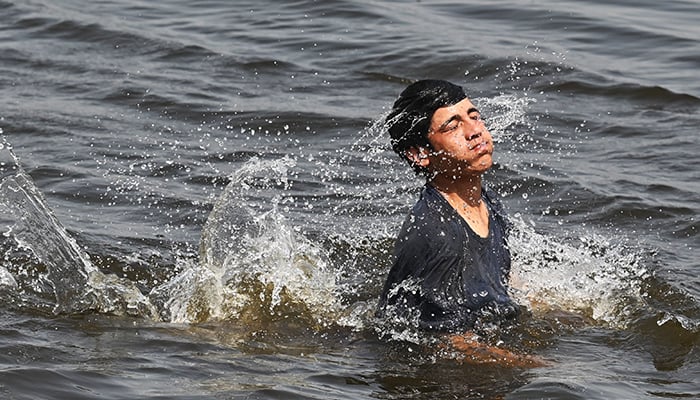Islamabad, May 18, 2025: A brutal heat wave in Pakistan is pushing temperatures to record-breaking levels, making daily life increasingly difficult across many regions.
According to the Pakistan Meteorological Department (PMD), Lahore is expected to face a searing 43°C today, with Islamabad and Peshawar not far behind at 41°C.
The extreme weather is raising health concerns and prompting officials to issue urgent warnings.
While Quetta and Karachi are relatively cooler at 36°C, parts of Karachi could still sizzle at 40°C, showing that no major city is escaping this punishing wave.
This intense heat wave in Pakistan has significantly impacted public activity and strained the country’s infrastructure — with reports of melting roads in Punjab adding to the alarm.
Adding some hope, PMD forecasts rainfall this evening in hilly areas like Gilgit-Baltistan, Kashmir, Upper Khyber Pakhtunkhwa, and nearby regions. However, for the plains — including Punjab and Sindh — dry and oppressive heat is likely to dominate for at least the next two to three days.
The Punjab Disaster Management Authority (PDMA) has sounded the alarm, cautioning residents about a further temperature spike expected around May 19.
“We urge citizens to stay indoors during peak hours and follow safety measures,” said a PDMA spokesperson, stressing the unusual intensity of this heat wave.
In Lahore Heatwave, the current minimum temperature is hovering around 28°C — far above seasonal norms — and is expected to climb further.
The PMD confirms that these scorching conditions are part of a larger regional trend linked to global climate anomalies.
Health professionals are advising the public to drink water frequently, avoid direct sunlight, and use protective gear like umbrellas and caps.
Vulnerable populations — such as children, elderly people, and those with existing health issues — are especially at risk and should take added precautions.
Read More: Heatwave Warning Issued for Pakistan
As Pakistan faces one of its most intense weather spells in recent memory, climate experts emphasize the growing frequency of such events.
“This isn’t just summer heat — it’s a signal that climate change is turning extreme weather into the new normal,” said Dr. Adeel Ashraf, a Lahore-based climatologist.









